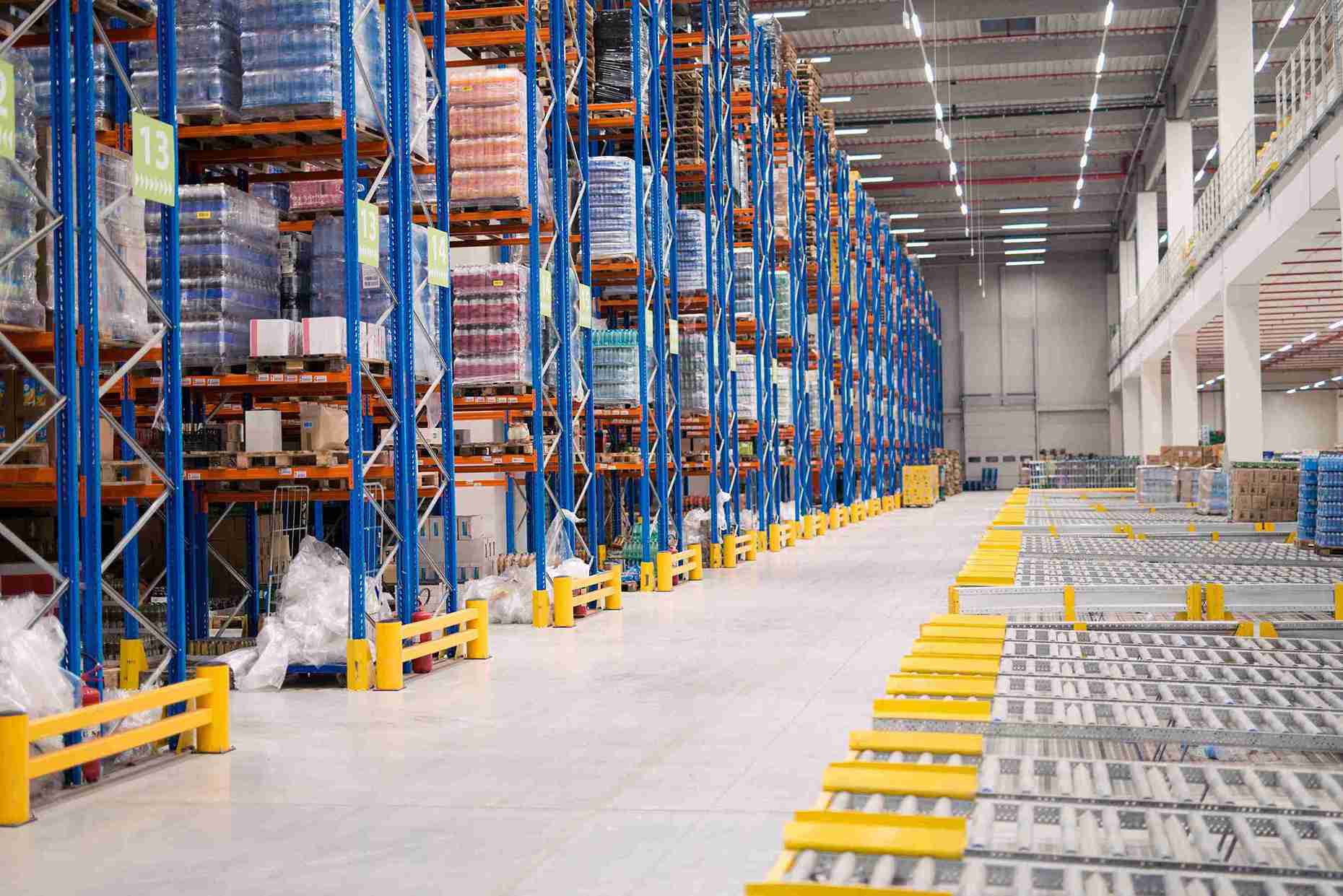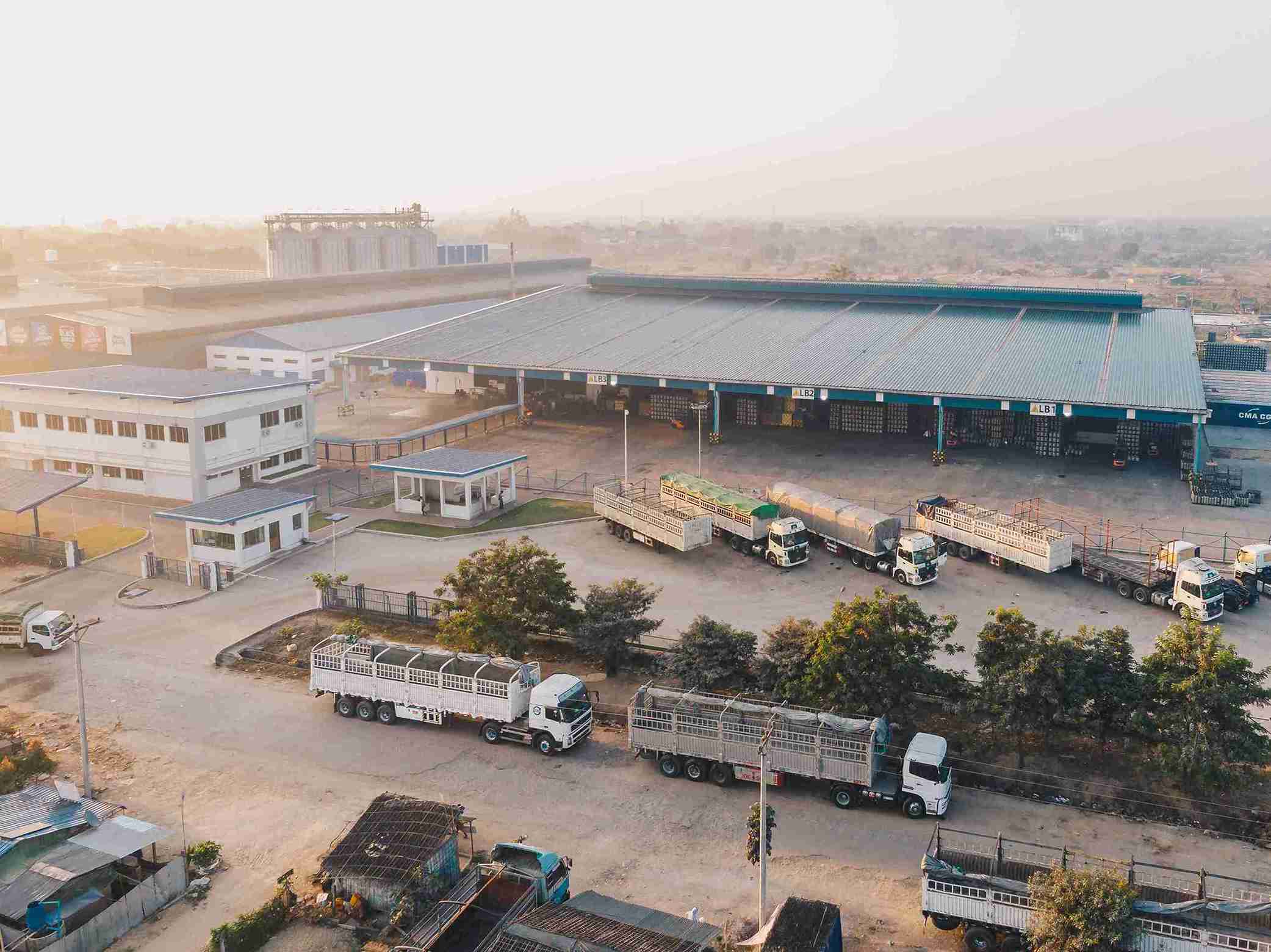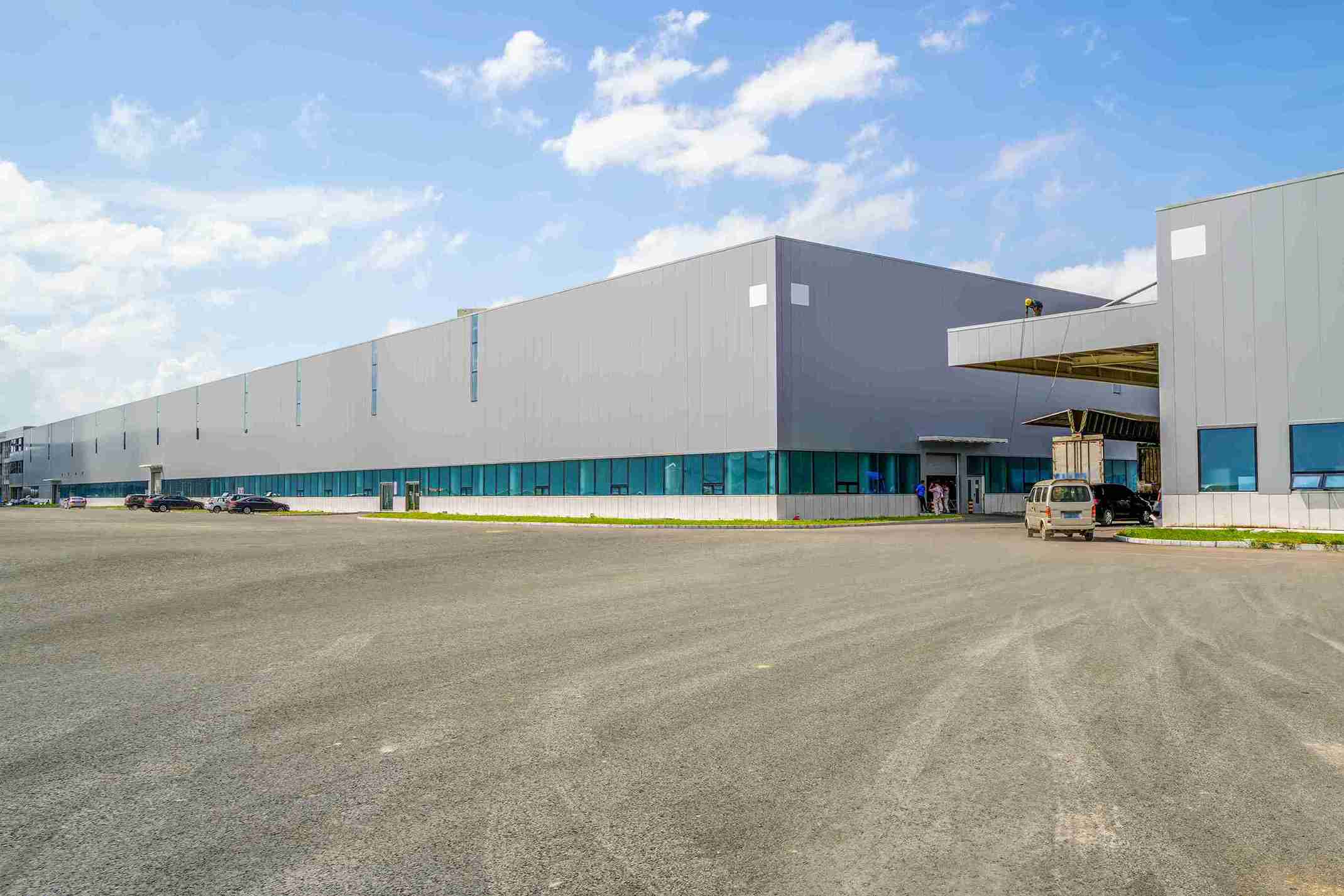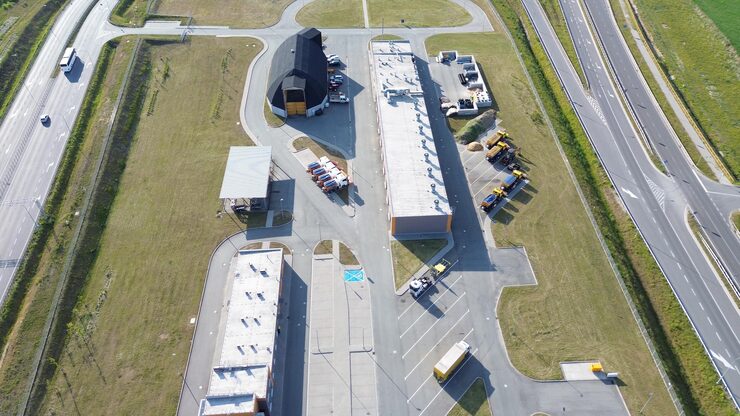As the demand for efficient logistics and storage continues to rise, New York remains a key location for businesses looking to secure dependable warehouse space. The warehousing industry is expanding rapidly, with the global market projected to grow by USD 643.2 billion between 2025 and 2029.
This growth reflects the increasing need for flexible, scalable, and specialized storage options across industries. For businesses operating in or entering the New York market, selecting the right warehouse type is a vital step in supporting smooth operations and future growth.
Here are the main types of warehouses available in New York for businesses.
Table of Contents
Key Takeaways✔ Businesses in New York can lease flexible public storage spaces shared by multiple companies for short- or long-term use. ✔ Companies with steady inventory needs often invest in dedicated private warehouse facilities that offer full control and security. ✔ Distribution centers are high-volume hubs designed for quickly moving goods between suppliers and retailers. ✔ Ideal for e-commerce, fulfillment centers manage order processing, packing, and last-mile delivery. ✔ Temperature and humidity-controlled spaces protect sensitive goods like food, electronics, and pharmaceuticals. ✔ The rental process involves identifying business needs, choosing the right location, reviewing lease terms, and possibly working with a broker for guidance. |
What Types of Warehouses Can Businesses Find in New York?

1. Public Warehouses
Public warehouses are storage facilities that can be rented by multiple businesses, either for short or long periods. hese spaces are often used when a business needs flexible, cost-effective storage, often in partnership with a moving company, without the responsibility of owning or managing a full warehouse.
Common Users and Industries
Public warehouses are often used by small to medium-sized businesses that do not require a full warehouse year-round. These businesses benefit from shared services and infrastructure without the high cost of private ownership.
- Retailers and Wholesalers: Use public warehouses for overflow or regional distribution.
- E-commerce Businesses: Rely on these facilities for inventory storage and shipping support.
- Importers and Exporters: Often rent warehouse space before goods are cleared or distributed.
Services Offered
Public warehouses typically offer more than just space. They often provide essential logistics services that support day-to-day business operations.
- Storage Space: Organized and secure areas to keep goods of various sizes and categories.
- Inventory Management: Tracking systems that help businesses monitor stock levels and movement.
- Transportation Coordination: Some public warehouses assist with arranging delivery or pickup of goods, making operations smoother.
2. Private Warehouses
Private warehouses are storage facilities owned and used by a single business. These warehouses are usually built or leased with long-term goals in mind, giving companies full control over their inventory systems, storage processes, and logistics planning.
Who Uses Private Warehouses
Private warehouses are mostly used by businesses that need stable, consistent space over time, especially in sectors like retail, manufacturing, and food distribution—key examples when considering what industries benefit most from warehouse storage in New York.
- Large Corporations: These businesses operate at a scale that requires constant access to large volumes of goods in one dedicated location. Having their own warehouse helps them streamline supply chains and avoid delays, which is important when exploring what types of warehouses are available in New York for businesses.
- Manufacturing Companies: Manufacturers store raw materials and finished products on-site to support uninterrupted production schedules. This arrangement gives them the flexibility to manage operations without relying on external providers.
- Retail Chains: Businesses with multiple stores benefit from centralized storage to distribute inventory quickly across outlets. A private warehouse supports their need for frequent restocking without third-party limitations.
Key Benefits of Private Warehousing
These warehouses offer more than just space—they give businesses the ability to build systems that support their unique needs.
- Operational Control: Businesses can design every part of their workflow, from shelving to staffing, without needing approval from outside parties. This level of control is appealing for companies searching what types of warehouses are available in New York for businesses.
- Customized Systems: Companies can integrate their own inventory software, equipment, and layout based on internal goals. This helps improve efficiency and makes it easier to meet industry-specific demands.
- Consistent Space Availability: Private warehouses eliminate concerns over availability since no other tenants are involved. This makes it easier to scale storage needs without unexpected changes.
- Improved Security: Only the business and its staff have access to the space, lowering the risk of theft or tampering. This level of security is useful for those in regulated industries or managing sensitive products.
Considerations Before Choosing a Private Warehouse
Though private warehouses are reliable, they are not always the best fit for every company or budget.
- Cost Commitment: Leasing or buying a private warehouse in New York often comes with high upfront costs, including property, staffing, and equipment. Businesses with tight budgets or fluctuating needs may find shared options more suitable.
- Staff and Management: The company is responsible for hiring warehouse staff, managing operations, and handling logistics on its own. This can be challenging for businesses without internal resources or expertise.
- Long-Term Use: Private warehousing makes the most sense for businesses with long-term stability in their operations and location. If a company is still growing or frequently shifting strategy, a flexible model may work better for now.
Industry Examples That Benefit From Private Warehouses
Some industries have specific needs that make private warehousing the best solution, especially when long-term storage and control are required.
- E-Commerce: Online sellers with a high volume of orders benefit from fast access to their stock without waiting on third-party providers. This setup allows them to manage shipping times better and answer the common question of what industries benefit most from warehouse storage in New York.
- Food and Beverage: These businesses need strict control over storage temperatures and cleanliness standards. A private facility lets them implement their own food safety protocols without relying on shared space.
- Pharmaceuticals: Drug companies must follow strict regulatory rules for storage, including temperature and tracking. Having their own warehouse ensures compliance and reduces the risk of loss or spoilage.
- Automotive: Car parts require large, organized spaces with systems that support bulk inventory. A private warehouse helps auto businesses manage stock across seasons and locations with fewer supply issues.
3. Distribution Centers

Distribution centers play a key role in supply chains by focusing on the quick movement of goods rather than long-term storage. Businesses often use them to sort, pack, and ship items efficiently across various locations. In places like New York, these centers help companies keep up with fast-paced demand and same-day delivery expectations.
Key Features Of Distribution Centers
Distribution centers in New York are built to handle high volumes of goods and time-sensitive shipments. These features make them essential for retailers and e-commerce operations.
- High-Volume Handling: Large spaces designed to process thousands of packages each day, helping businesses keep up with orders.
- Advanced Inventory Systems: Often equipped with barcode scanners and real-time tracking software to manage incoming and outgoing goods.
- Central Location Advantage: Many distribution centers are placed close to highways, ports, or airports to allow faster access to key areas in and around New York City.
- Cross-Docking Capabilities: Goods are quickly unloaded from inbound trucks and loaded directly onto outbound ones, reducing storage time.
Who Uses Distribution Centers?
What industries benefit most from warehouse storage in New York, especially for distribution needs? Distribution centers are popular among several fast-moving industries. Their structure supports quick operations and high demand, making them ideal for:
- E-Commerce Companies: Benefit from fast shipping and order fulfillment, especially for next-day or same-day delivery.
- Retail Chains: Use distribution centers to keep stores restocked with popular products, especially in busy seasons.
- Grocery and Food Services: Require regular shipments of perishable goods that need to move quickly to stay fresh.
- Pharmaceuticals: Depend on reliable, time-sensitive deliveries to clinics, hospitals, and pharmacies.
4. Fulfillment Centers
Fulfillment centers play a major role in the modern supply chain. These warehouses are designed specifically to handle the complete order process, from receiving inventory to shipping it out to customers. In busy commercial areas like New York, fulfillment centers are a popular option for businesses that sell products online and want to streamline their operations.
Primary Function of Fulfillment Centers
The main goal of a fulfillment center is to manage and complete customer orders efficiently. These facilities take over much of the work that would otherwise need to be done in-house, helping businesses save time and space.
- Order Processing: Goods are picked, packed, and shipped to customers as soon as an order is placed
- Inventory Reception: Products are received from suppliers and organized within the warehouse
- Shipping Management: Packages are labeled and handed off to delivery partners for fast transportation
Services Offered by Fulfillment Centers
Aside from packing and shipping, many fulfillment centers offer services that support business growth and help ensure customer satisfaction. Knowing what types of warehouses are available in New York for businesses can greatly impact a company’s logistics and operational efficiency, as different warehouse types cater to various needs.
- Inventory Tracking: Businesses can monitor stock levels in real-time through simple software tools
- Returns Handling: Returned items are processed, restocked, or reported as damaged, depending on the condition
- Customer Support Integration: Some centers offer direct support or connect with customer service systems to manage questions about orders
Ideal Business Types for Fulfillment Centers
Fulfillment centers are not just for big companies. They’re ideal for small and medium-sized businesses too—especially those that rely on selling goods online and don’t have room for storage or staffing to handle logistics on their own.
- E-Commerce Brands: These businesses benefit from having inventory stored and orders fulfilled automatically
- Subscription Box Services: Fulfillment centers can handle recurring shipments with ease
- Startups and Small Shops: With low overhead and no warehouse staffing required, small businesses can scale more easily
5. Climate-Controlled Warehouses
Climate-controlled warehouses are specialized storage spaces designed to maintain stable temperature and humidity levels. These facilities are important for businesses that deal with products sensitive to heat, cold, or moisture. In New York, these warehouses are often used by companies that need to store valuable or delicate goods safely over time.
Key Features of Climate-Controlled Warehouses
Climate-controlled warehouses offer more than just basic storage. Their systems are built to protect products from weather-related or seasonal damage, especially in a city like New York where temperature changes are common.
- Temperature Regulation: Maintains consistent temperatures regardless of outside weather. This is ideal for electronics, cosmetics, or pharmaceuticals that can break down in extreme heat or cold.
- Humidity Control: Prevents moisture from building up. Moisture can cause mold, rust, or warping, especially in wooden items, paper goods, or artworks.
- Air Quality Systems: Keeps airflow clean and reduces dust or airborne particles. This helps preserve the quality of sensitive items like documents, fabrics, or medical supplies.
- Insulated Structures: Includes wall and ceiling insulation to keep internal conditions steady. This reduces energy usage while keeping items safe from weather shifts.
Benefits of Using Climate-Controlled Warehouses
Knowing how to find short-term warehouse rentals in New York is also key to choosing the right warehouse that can help companies avoid major losses. Whether storing goods short-term or long-term, the environment inside these spaces plays a big role in product quality.
- Product Preservation: Items stay in original condition without exposure to harmful temperatures or dampness.
- Seasonal Stability: New York’s weather can shift dramatically. These warehouses protect products year-round, no matter the season.
- Peace of Mind: Business owners don’t have to worry about inventory getting damaged due to heat waves or cold snaps.
- Regulatory Compliance: Some industries, like healthcare, require strict storage conditions. These warehouses help businesses stay within those legal rules.
Industries That Benefit Most
Some industries rely heavily on environmental protection for their products. Climate-controlled storage makes all the difference in maintaining value and meeting business needs.
- Healthcare and Pharmaceutical: Stores medication, vaccines, and tools that must stay within specific temperature ranges.
- Fine Arts and Museums: Preserves collections in stable environments to avoid decay or damage.
- Specialty Foods and Beverage Brands: Keeps perishable and high-value food items safe for long-term or seasonal storage.
- Tech and Electronics Retail: Protects from humidity and temperature swings that can cause parts to corrode.

How to Rent a Commercial Warehouse in New York City?
Renting a commercial warehouse in New York City can be a smart move for businesses needing extra space for storage, distribution, or fulfillment. When considering what types of warehouses are available in New York for businesses, companies must choose an option based on their specific needs. Fortunately, the city offers a range of options, from small flexible units to large industrial spaces.
- Assess Business Needs: Businesses should first define what they need the warehouse for—like bulk storage, e-commerce fulfillment, or seasonal overflow. This helps determine if a long-term lease or short-term rental is a better fit, especially for companies asking how to find short-term warehouse rentals in New York?
- Choose the Right Location: NYC has multiple warehouse districts. Pick a location close to transportation routes or target customers for faster access and lower delivery costs.
- Determine Size and Layout: Consider how much space is needed and whether the layout supports racking, equipment, or loading docks. Having a clear idea helps avoid renting too much or too little space.
- Look for Key Features: Some warehouses come with climate control, security, or office space. Businesses storing fragile or regulated items should look for features that match their specific needs. These features are especially important when exploring how to find short-term warehouse rentals in New York for sensitive or seasonal goods.
- Set a Budget: Warehousing costs in NYC can vary widely. Include not just rent, but also utilities, taxes, and maintenance fees. Knowing the full cost helps businesses stay within budget.
- Work With a Commercial Broker: Brokers familiar with NYC’s warehouse market can help find properties faster and negotiate lease terms. They also understand zoning laws and building codes.
- Inspect the Property: Before signing anything, visit the site to check its condition, layout, and accessibility. This step ensures the space matches business needs and avoids future issues.
- Review Lease Terms Carefully: The lease should be reviewed for things like repair responsibilities, lease length, and how rent increases are handled. This step is key when deciding how to rent a commercial warehouse in New York City without unexpected issues.
Frequently Asked Questions
How are warehouses classified?
Warehouses are typically classified based on ownership, function, and usage. Common types include public, private, bonded, and distribution or fulfillment centers. They may also be categorized by features, such as climate control or automation. Each type serves different business needs depending on scale and industry.
Which type of warehouse is best?
The best type of warehouse depends on the business’s specific needs, such as storage duration, product type, and order volume. For example, fulfillment centers suit e-commerce, while distribution centers are better for bulk shipping. Climate-controlled warehouses work well for sensitive goods. Businesses in New York often choose based on location, flexibility, and service range.
How to get warehouse contracts?
Warehouse contracts are typically secured through direct agreements with warehouse providers or third-party logistics companies. Businesses should define their storage and service requirements, then request proposals or quotes. Working with a commercial broker or 3PL like 3PL Warehouse By Best can help connect with the right facility. Reviewing terms, pricing, and service levels is key before signing.
What are the 4 functions performed in warehousing context?
The four main functions in warehousing are receiving, storage, picking, and shipping. Receiving involves checking and unloading goods, while storage focuses on organizing items safely. Picking refers to selecting products for orders, and shipping handles packaging and outbound logistics. These steps ensure smooth product flow and inventory accuracy.
Is logistics the same as warehousing?
Logistics is not the same as warehousing but includes it as one part of a larger process. Warehousing focuses on storing and handling goods, while logistics covers the full movement of goods from supplier to end customer. Logistics includes transportation, inventory management, and order fulfillment. Warehousing supports logistics by providing secure, organized storage between steps.

Power Business Growth With Trusted Warehousing Solutions in New York, NY!
Flexible, high-performance warehouse operations are available now with 3PL Warehouse By Best, right in the heart of New York, NY. Designed for efficiency and scale, these commercial spaces support accurate order handling, real-time inventory control, and fast turnaround. Whether storing, packing, or distributing, businesses in New York, NY, rely on our team to keep operations moving without delays or wasted space.
Get started with 3PL Warehouse By Best—reach out now to explore space availability and service options!

